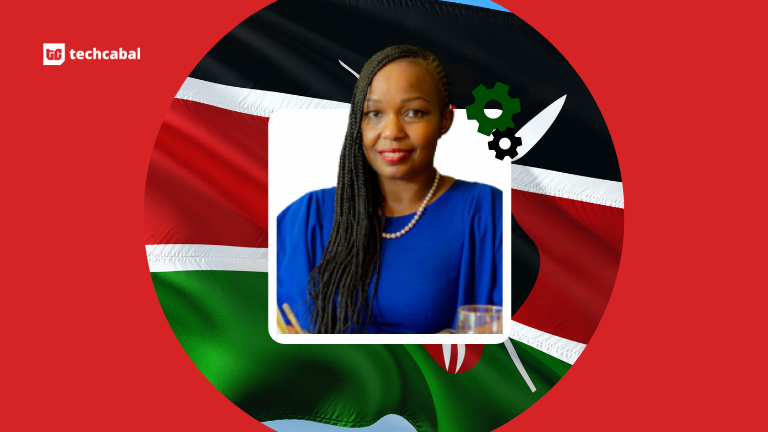In celebration of Women’s History Month, all editions of Quick Fire for March will feature the inspiring African women making waves in the tech ecosystem.
Today, it’s Agnes Muthoni.
Agnes is the Director of Strategic Partnerships, Andela Learning Community.
Explain your job to a five-year-old
I look for partners that help my company build and run educational programs for software engineers to become the best in their careers. We help thousands of software engineers get jobs in different countries across the globe and connect companies who want to employ software engineers to hire the best engineers.
What’s something you wish you knew earlier in your career/life?
I wish I talked more about my struggles with imposter syndrome. When you scratch the surface, you’ll see that you are not alone. Chances are many other people are feeling the same doubts, inadequacies and fears. I recently hosted Seni Sulyman, a former colleague and friend, on my podcast. During our conversation, Seni opened up on his bouts of self-doubt at different stages of his career. This kind of vulnerability is what we need to talk about widely as it provides invaluable perspective and relatable wisdom for getting back in the game.
What’s the most promising thing about tech in Africa?
This is an interesting question! I think there are a couple of key dimensions fueling the growth of the digital economy in Africa that makes the next couple of years exciting to watch. First, the remote working model has given people more flexibility in choosing where to work and live. The second is the ground-breaking innovations in tech across Africa.
With these key dimensions, we have seen talents become startup founders and raise funding. Last year, we saw a record of +5 high-growth startups in Africa attain unicorn status including Andela. This startup success points to a bright future for the tech ecosystem in Africa.
How can tech startups in Africa build and retain more talent?
With the constant evolutions in technology and the rise of more companies across the globe, the talent landscape has shifted dramatically over the last decade. Sourcing, screening, up-skilling and retaining talent has become a challenge that tech startups founders and enterprise organisations face.
In Kenya, where I live, the country is experiencing a shortage of tech talent, resulting in tech talent wars. This is not just an African problem, but a global challenge.
Tech startups in Africa should invest in educating and nurturing talents as well as build partnerships with global talent companies like Andela to source the best talents for their companies in Africa and globally.
What (singular) achievement are you most proud of?
Raising and nurturing a global team of future leaders who have built successful careers is the thing I am most proud of. I am really excited when I see and hear about some of them who are pulling giant strides, building hyper-growth startups in Africa and beyond.
What’s one misconception businesses make about partnerships?
One of the most powerful key attributes of strategic partnerships is building leverage through business partners. Strategic partnerships are mutually beneficial to all parties involved and not just for one business. Partnerships complement the competencies and strengths of each other, generating true value creation for all entities.
What do you think about Web3?
In my view, Web 3 presents more opportunities for technologists to create, connect and have more ownership over their craft. As we move towards a more decentralised internet where trust is encoded within each block and the information can be viewed and verified by a community of users, this opens up more pathways for technologists to learn, grow and get matched with capital. This in my opinion gives more people the chance to express their human ingenuity and creativity.



















